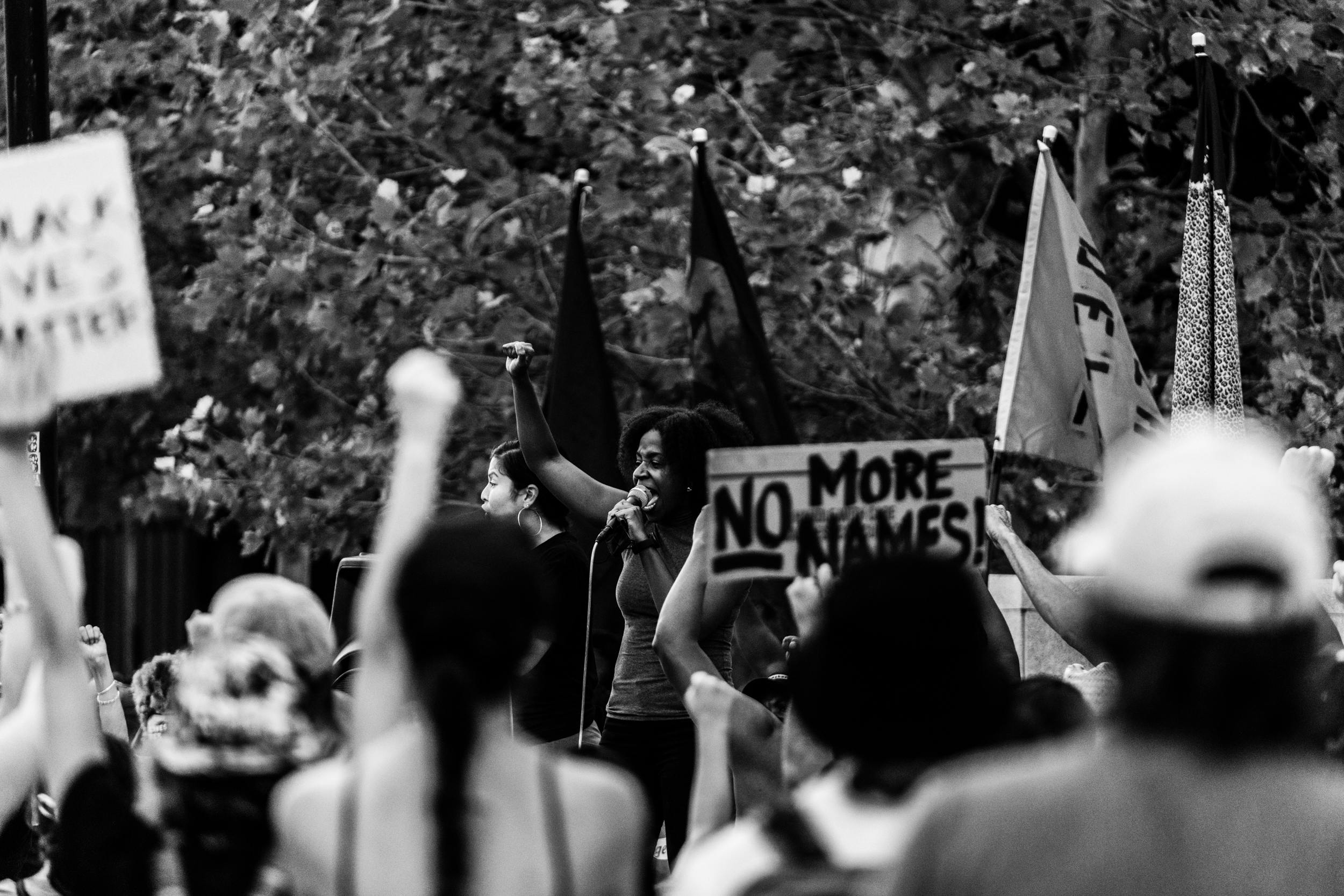The history of Black resistance is not complete without examining the trailblazers who authored our story. Throughout time, Black musicians, teachers, students, and business owners have stepped into activist roles, fighting for the liberation of future generations. This past month, we have lost three leaders who have stood up for liberty: liberation activist Assata Shakur, renowned historian Dr. Quintard Taylor, and trans rights activist Miss Major Griffin-Gracy. Their work set the foundation for freedoms we have today. While they may be gone, their legacies continue to shape, inspire, and lead us towards freedom.
Honoring our Past:
“It is our duty to fight for our freedom. It is our duty to win. We must love each other and support each other. We have nothing to lose but our chains.” — Assata Shakur
Assata Shakur was a fearless advocate for Black liberation whose life and work continue to inspire generations. Born JoAnne Deborah Byron, Assata’s activism spanned decades, from her work with the Black Panther Party to her poignant autobiography, ‘Assata’. Her efforts are a stark reminder that real resistance can make a profound impact, and the fuel storytelling can bring to movements. Despite being falsely accused of murder as punishment for her activism, Assata’s strength never wavered. She continued her fight to liberation through pen and paper, both within and beyond prison walls, when she escaped prison and found asylum in Cuba.
“Although these are grave times, history reminds us that we have been here before. History shows us that we will not only survive, we will be stronger in the future.” — Dr. Quintard Taylor
However, how can we fight for our futures without remembering our roots? This is the work that the late Dr. Quintard Taylor, who was a respected author, a professor emeritus of American History at the University of Washington, and the founder of BlackPast, dedicated his life to. Dr. Taylor understood the power that history has. History is the root of cultural pride; it educates us on resistance movements of the past, it helps us understand who we are, and most of all—it connects us to each other. Thanks to his leadership, BlackPast has evolved into the world’s largest online encyclopedia for Black history, engaging more than 64 million users since its founding. By remembering our pasts, we can cultivate our futures
“I don’t need their permission to exist; I exist in spite of them.” — Miss Major Griffin-Gracy
Last not but not least, Miss Major Griffin-Gracy reminds us of the importance of intersectionality. Born in 1940s Chicago, Miss Major is known for her work in LGBTQ+ liberation, and was dedicated to uplifting our community’s most marginalized voices, Black trans women. Over the span of her life, Miss Major was a pillar of the Black trans community. From resisting police violence in the Stonewall Uprisings to launching San Francisco’s first mobile needle exchange, Miss Major was an icon who fought for equal rights until her final days. She also founded the House of GG — a.k.a. the Griffin-Gracy Educational Retreat and Historical Center, an organization dedicated to supporting and nurturing the leadership of Transgender women and men of color living in the U.S. South. Miss Major is a reminder that the Black experience is not monolithic, and that for true liberation, we must fight for everyone.
Charting our Future
The lessons we learn from our ancestors are more poignant now than ever before. The work towards liberation isn’t done, it’s only just begun. By connecting with our history, cultivating our community, and uplifting our most marginalized voices, we can continue to build on the groundwork that leaders like Assata Shakur, Dr. Quintard Taylor, and Miss Major Griffic-Gracy laid out. Together, we can take the steps towards a collective liberated future.
